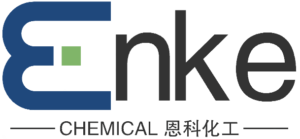The Dual Tariff Challenges of MDI and TCPP: Shandong Enke Chemical’s Strategic Response
February 12, 2025 marked a critical moment in U.S.-China chemical trade tensions when the Ad Hoc MDI Fair Trade Alliance filed anti-dumping (AD) and countervailing duty (CVD) petitions against Chinese imports of methylene diphenyl diisocyanate (MDI). Just two months later, on April 21, 2025, the U.S. Federal Trade Commission (FTC) is set to announce its final ruling on AD/CVD tariffs targeting alkyl esters phosphate flame retardants from China, including TCPP (tris(2-chloropropyl) phosphate) and TDCPP (tris(1,3-dichloro-2-propyl) phosphate) etc. These back-to-back trade measures signal escalating regulatory pressures on China’s chemical exports, directly impacting global supply chains for polyurethane and flame retardants. As a leading producer of TCPP, TEP (triethyl phosphate), and related flame retardants, Shandong Enke Chemical is navigating this complex landscape with innovation and agility.
The Deep Interdependence of MDI and TCPP: Dual Shocks to the Supply Chain
MDI, a cornerstone of polyurethane production, and TCPP, a critical flame retardant, are inextricably linked in both application and market dynamics:
Application Synergy
MDI-based rigid and flexible foams—used in insulation, automotive interiors, and furniture—rely heavily on TCPP and TEP to meet fire safety standards. Any disruption in MDI supply or pricing directly affects demand for TCPP and TEP.
Cost Cascading Effects
U.S. tariffs on MDI (estimated dumping margins: 305.81%–507.13%) could inflate polyurethane production costs. If TCPP/TDCPP tariffs are imposed simultaneously, downstream manufacturers may face compounded cost pressures, potentially triggering supply chain relocations.
Substitution Risks
Dual restrictions on MDI and TCPP could accelerate shifts to non-Chinese suppliers or alternative materials, threatening China’s dominance in global chemical markets.
FTC’s TCPP/TDCPP Ruling: Implications for Flame Retardant Exports
The FTC’s pending decision on alkyl esters phosphate flame retardants carries three key ramifications:
Tariff Escalation:
If finalized, AD/CVD duties on TCPP/TDCPP—combined with the Trump-era 10% universal tariff—would significantly raise export costs for Chinese producers.
Regulatory Greenwashing
U.S. authorities may frame the tariffs as both “protecting domestic industries” and “promoting eco-friendly alternatives,” leveraging environmental concerns over chlorinated flame retardants to justify trade barriers.
Market Diversification Imperative
With the U.S. accounting for over 30% of Shandong Enke’s overseas sales, the company is accelerating efforts to expand in Southeast Asia, the Middle East, and other emerging markets to mitigate reliance on U.S. buyers.
Shandong Enke Chemical’s Four-Pillar Strategy
Amidst these challenges, Shandong Enke Chemical is leveraging its technical expertise and global vision to secure competitive advantages:
Technological Innovation: Pioneering Sustainable Solutions
- Developing low-chlorine/halogen-free flame retardants (e.g., novel phosphate esters) to align with tightening EU/U.S. environmental regulations.
- Implementing closed-loop production systems to reduce waste and energy consumption, enhancing appeal to sustainability-focused clients.
Market Diversification: Reducing Geographic Risk
- Targeting infrastructure-driven demand in Belt and Road Initiative (BRI) regions, including Southeast Asia and Eastern Europe.
- Establishing technical service hubs in India and Mexico to deliver localized support and rapid customization.
Supply Chain Collaboration: Building Resilience
- Partnering with Chinese MDI producers to co-develop high-performance polyurethane-flame retardant composites, reducing cost sensitivity for end-users.
Exploring tariff-sharing models with logistics partners and distributors to optimize supply chain expenses.
Proactive Compliance: Countering Trade Litigation
- Participating in industry-wide legal defenses to demonstrate compliance with international trade rules, providing transparent production data to refute subsidy claims.
Securing certifications such as EU REACH and U.S. EPA Safer Choice to validate product safety and sustainability.
Looking Ahead: Turning Crisis into Opportunity
While the dual U.S. tariffs on MDI and TCPP pose immediate challenges, they also catalyze long-term transformation for Chinese chemical manufacturers:
Breaking Technical Barriers
Investments in R&D for bio-based phosphates and non-halogenated flame retardants position Shandong Enke as a leader in green chemistry.
Global Production Footprint
Evaluating feasibility of manufacturing bases in Southeast Asia or North America to bypass tariff walls and enhance regional responsiveness.
Value Chain Integration
Transitioning from commodity supplier to system solutions provider, offering tailored polyurethane-flame retardant packages to deepen client partnerships.
Conclusion
The 2025 U.S. tariff rulings on MDI and TCPP underscore the fragility—and necessity—of rebalancing global chemical supply chains. For Shandong Enke Chemical, innovation, agility, and collaboration are not merely survival tactics but pillars of sustainable growth. By embracing technological leadership, diversifying markets, and championing compliance, Chinese chemical enterprises like Shandong Enke can transform trade headwinds into catalysts for global competitiveness. In an era of escalating protectionism, technology-driven resilience will define the winners of tomorrow’s chemical industry.
Partnering up with a global leading material manufacturer that supplies diversified phosphorus-based chemicals.
